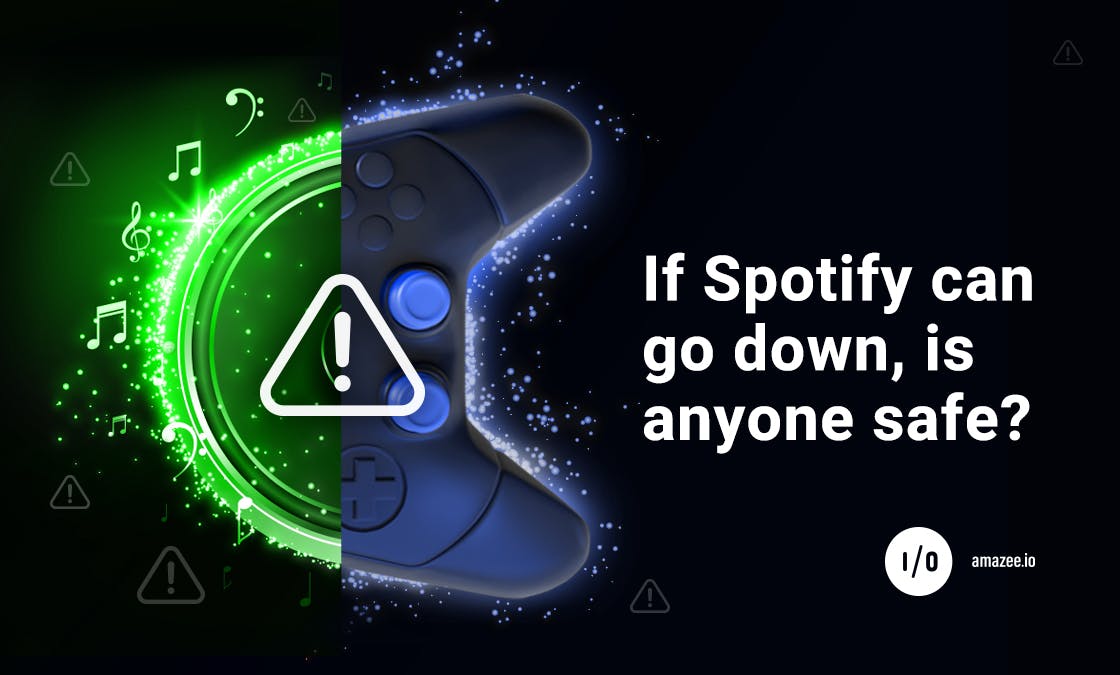Sophia Harris
|
Mar 09, 2022
|2.5 min read
Search Topic

If you listen to music daily, you may have been frustrated on March 3rd, 2022, when the large music streaming platform Spotify was not functional for at least three hours. Some users thought it was their own account error, but the truth is that nearly 406 million people may have been without service to Spotify yesterday.
When a large platform like Spotify (or Discord) goes down, it causes a massive ripple worldwide. Users everywhere are impacted, and many global companies wonder: If a massive company like Spotify could go down like this, could it happen to me?
The answer is yes. Unfortunately, outages can happen to anyone. Remember, Instagram went down for almost eight hours in 2021 because of an update gone wrong.
So why did Spotify go down?
Very likely, it wasn’t AWS or DNS. It was Google.
Spotify didn’t specify the exact reason on its Twitter account, but according to a study released by Google Cloud, it is a client. Yesterday, the Google Cloud status page mentioned an “issue with traffic Director caused by a recent release. " It also mentioned issues with cloud load balancing and networking.
Google Cloud tweeted about the ongoing issue with HTTP 500 errors on the Google Cloud Load Balancer. While nothing is certain, this could be the reason for the outage.
Discord services also reported outages yesterday due to an issue that caused its API to fail.
When large companies like Spotify and Discord experience outages, many businesses worry about their own sites. These global outages, inconvenient as they may be, are a good reminder that security, stability, and disaster are not guaranteed—especially with a legacy hosting solution.
For those concerned, we suggest taking this opportunity to check in on your own site’s stability and security. While outages can technically happen to anyone (as we’ve seen), there are still helpful steps you can take to protect yourself from a worst-case event.
You know by now that security is vital for your site—both for you and your end-users. An unstable site that isn’t proactively monitored may lead to slow load times, crashes, error messages, and outages.
Continuous deployments and proactive monitoring are absolutely key to site safety and security. Keep that in mind as you perform your “site checkup” today - which we recommend you do ASAP!
If your site falls short or you’re concerned about its stability, contact us for a chat. We’re happy to listen and provide possible solutions.
Updated 2. September, 2024

